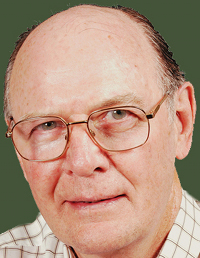Bath bio-tech firm Stablepharma is set to revolutionise the way life-saving vaccines are delivered in the developing world by eliminating the need for costly refrigeration.
Its Stablevax technology involves a ground-breaking technique for drying and stabilising vaccines inside a disposable syringe, allowing them to be stored at any temperature and rehydrated for immediate injection.
This eliminates the need for an expensive ‘cold chain’ of refrigerators to store and transport vaccines – which is often ineffective anyway. About half the world’s vaccinations are wasted because of exposure to high temperatures, according to estimates.
Stablevax has been developed by Dr Bruce Roser, chief scientific officer of Stablepharma and a world authority on drug stabilisation and delivery.
The company is seeking investment of £200,000 to fund medical certification of the new vaccine delivery product.
Managing director Nick Child said: “This technology represents a major breakthrough. I'm immensely proud of the fact that this life-saving medical invention has been developed by a Bath company.”
Dr Roser, pictured, added: “Stablevax offers a far more efficient and cheaper way to deliver vaccines by stabilising and storing them in a disposable syringe.
“At present about 50% of the world’s vaccines arrive in a heat-damaged state which renders them useless. It means that far too many people, particularly children in developing parts of the world, are dying needlessly from common diseases that should be easy to protect against.
“Stablevax has been developed to make life-saving vaccines much more widely available in poorer countries and represents a unique and exciting investment opportunity.”
Stablepharma was launched in 2010 to develop and market the Stablevax to pharmaceutical manufacturers and international development organisations.
It is developing stabilised vaccine products for tetanus, meningitis, hepatitis B and other vaccines.
Dr Roser invented the technique for concentrating and drying vaccines using a sugar solution to keep cells in a state of suspended animation ready for rehydration. His soluble glass stabilisation technology has since been endorsed by the World Health Organisation.




















